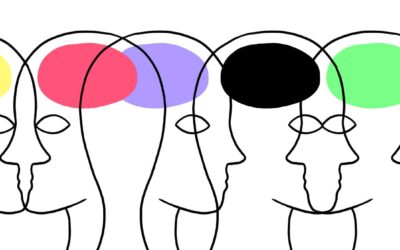Many parents dread this topic- and rightly so. Questions about when to tell their child, how to tell their child, worries about stigma and mental health all play a role in parents wanting to hold off for as long as possible.
I would like to start off by saying that it is completely normal to feel hesitant, but although these concerns are well intentioned it is better to tell your child about their diagnosis sooner rather than later. This post will discuss 6 reasons why to tell your child, when the timing is right and outline tips and advice on how to tell them.
So let’s get into it….why should I tell my child?
- Your child already knows they are different.
Depending on their age, they may already notice differences between them and their peers. This could trigger low self esteem and low confidence levels. Knowing their diagnosis can explain why they feel different.
- Your child learns that Autism is not something to hide, mask or be ashamed of.
Hiding the diagnosis from your child inadvertently teaches them Autism is something they should be ashamed of, so by teaching them their diagnosis you are showing them being different is a good thing!
- They will feel empowered, respected and understood.
We all want to feel understood, we all want to feel respected- including your child.
- Your child needs to know their differences have a name.
The name of their diagnosis does not define them, however by providing them with the relevant info, tools and coping mechanisms you are teaching them how they process info, why they might struggle with certain tasks etc.
- Your child is able to self advocate.
This is one of the most important skills you can teach your child. If they don’t know their diagnosis how can they advocate for their needs?
- Your child will avoid years of anxiety and confusion.
If your child does not know their diagnosis, they might feel lost and out of place. Telling them will help them navigate through life with a clear understanding of who they are.
There are so many more reasons, I have just outlined the ones I feel are most important. The next question is but when do I tell my child?? This answer will vary for each child- why? because every child develops at a different rate. One child might be ready to understand their diagnosis at 6 years old and another at 15 years old. Some important developmental factors to consider:
- Monitor their development- especially cognitive and emotional.
- Monitor their emotional state.
- Many children will start asking questions such as “Why do I feel different?” This is usually a sign that they are ready.
- Not all children will ask questions but express this differently.
NOTE: Telling your child what Autism is and explaining their diagnosis to them needs to occur on different days with lots of processing time in between.
When explaining Autism to your child you can start off by planting the seed. Start by explaining that we all have differences & give examples. Try explain this in terms of their favourite animal/toy etc. Also explain we all have similarities e.g. we all have feelings.
Help your child understand how they think. Always focus on strengths! E.g. “Have you noticed how incredibly organized you are compared to your classmates?”
Keep it simple. Explain the diagnosis as how one processes information. Use terms that are easy to understand. Allow a lot of processing time during & afterwards.
It is always a good idea for your child to raise the topic again after you have discussed it. Wait for them to ask questions. Always make it very clear that you are there form them at all times if they ever need anything.
This can be very daunting for many parents, however it is one of the BEST things you can do for your child! Evaluate your own emotional state before having the conversation. You want to feel at ease, positive and calm. Always keep it positive, direct and simple!



0 Comments